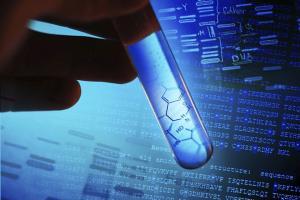These changes were also observed in the sows' embryos, and similar changes were even evident after the offspring had reached adulthood, according to the study published in the journal Scientific Reports

Representational Image
Even small dosage of hormone intake can alter gene expression in a way that also affects the next generation, warns a study. In an experiment with pigs, the researchers demonstrated that the administration of even extremely low doses of an endocrine disruptor chemical (EDC) -- an exogenous substance that has the same or similar effects as endogenous hormone -- leads to epigenetic changes in a pregnant sow's DNA.
These changes were also observed in the sows' embryos, and similar changes were even evident after the offspring had reached adulthood, according to the study published in the journal Scientific Reports.
ADVERTISEMENT
"EDCs, especially estrogens, are highly effective even at very low doses," said Susanne Ulbrich, Professor at Swiss Federal Institute of Technology in Zurich (ETH Zurich), Switzerland.
Pigs' hormonal changes during pregnancy closely resemble those in humans, so the results of the study are highly applicable to humans, she said.
The researchers exposed pregnant sows to varying doses of estradiol-17-beta, a natural estrogen, via their daily feed either over the course of the whole gestation period or only during the first ten days after fertilisation.
The lowest dose corresponded to the acceptable daily intake for humans -- 0.05 micrograms per kilogram body weight.
The experiment included a control group of pigs that received no estradiol.
The research revealed that estradiol affected the tissue-specific expression of about two dozen of the the 57 estrogen-related genes tested, according to dosage.
Most of these genes regulate the cell cycle or suppress the growth of tumours.
Similar changes to these genes also appeared in the embryos and in the adult offspring.
Even in the one-year-old female offspring, the researchers were able to determine that the epigenetic pattern of these genes had been altered.
Epigenetic changes occur, for example, through the addition or removal of small chemical groups, such as methyl groups, at certain points in the DNA.
This can alter the expression of the affected gene, and in turn change the cell's function.
Based on these results, the researchers called for a re-assessment of the acceptable daily intake value for hormone dosage.
"At the moment, recommended threshold levels are probably too high," Ulbrich said.
Catch up on all the latest Crime, National, International and Hatke news here. Also download the new mid-day Android and iOS apps to get latest updates
 Subscribe today by clicking the link and stay updated with the latest news!" Click here!
Subscribe today by clicking the link and stay updated with the latest news!" Click here!







